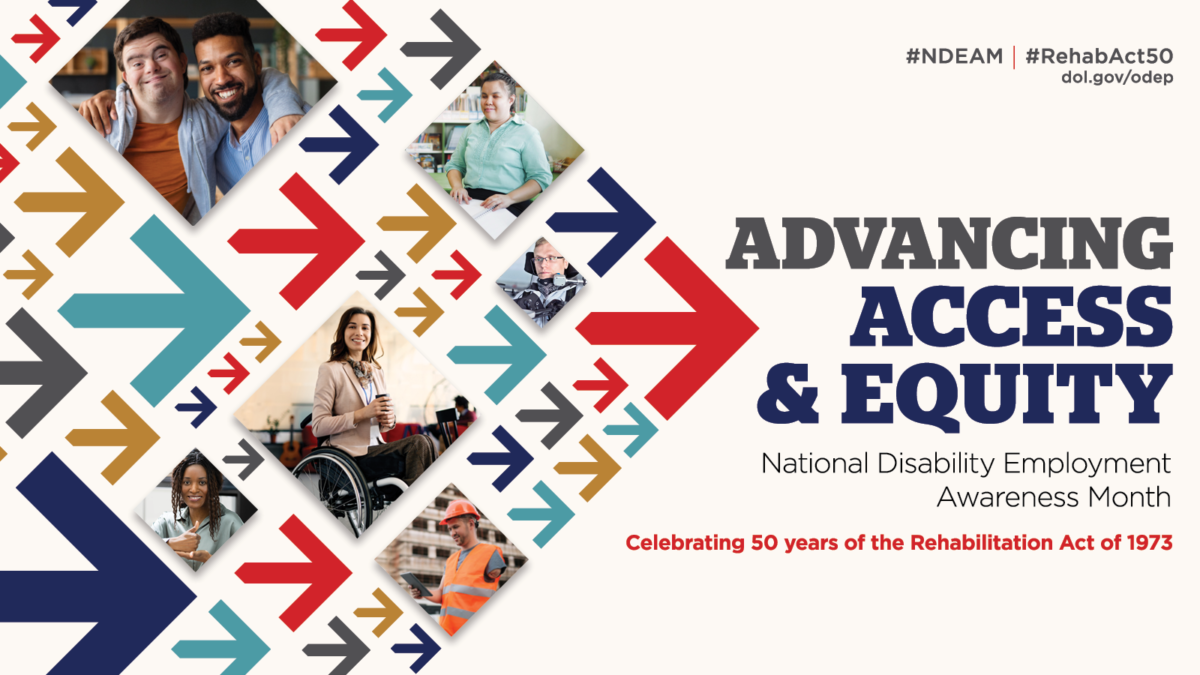By Jim Frazier, Public Policy Director, The Arc/UCP California Collaboration
Each year in October, organizations throughout the United States recognize the contributions of America’s workers with disabilities by highlighting supportive, inclusive employment policies and practices that benefit both the employer and employees. This year the National Office of Disability Employment Policy has chosen “Advancing Access and Equity” as the theme for National Disability Employment Awareness Month (#NDEAM2023).
Existing data makes a strong business case of the many benefits of hiring individuals with developmental disabilities, including high retention rates, low turnover, incentives and tax credits to assist employee with job training and supports, higher productivity and increased morale among co-workers. Despite the many known benefits of an inclusive workforce, in 2022 the U.S. Bureau of Labor reports that “the unemployment rate for persons with a disability continues to be about twice as high as the rate for persons without a disability.” To address the workforce disparity, there are federal and state incentive programs that encourage employers to create work opportunities for people with disabilities and embrace diversity.
-
- Federal Work Opportunity Tax Credit (WOTC): The credit amount an employer may claim, which ranges from $1,200 to $9,600 per eligible employee, depends on the wages paid to the employee and the number of hours the employee works, and is determined
- State Employment First Policy: The Department of Developmental Services has a Paid Internship Program that offers service providers a tiered bonus incentive to help place, train and retain interns with disabilities based on 30-day, 60-day and one-year milestones.
- State Department of Rehabilitation Tax Credits and Incentives: Training subsidies are available to businesses to offset the cost of providing training to a job seeker who is a DOR consumer. Generally, DOR offers employers up to $1,500, but more than that amount may be provided if the consumer needs more training than usual, or the position has a higher level of skill requirement.
Members of the disability community are an underutilized group of talented and dedicated individuals. Although 2021-22 California budget represents an all-time high in the amount of funding invested for increasing employment opportunities for people with disabilities, very few service providers and businesses are utilizing these incentive programs. We need to further engage the business community by raising awareness of these tax credits and incentives. They are fantastic opportunities that benefit the entire workforce.
This month, during NDEAM you can be an integral part of increasing employment opportunities for people with disabilities by sharing the incentive programs and your success stories with others.

